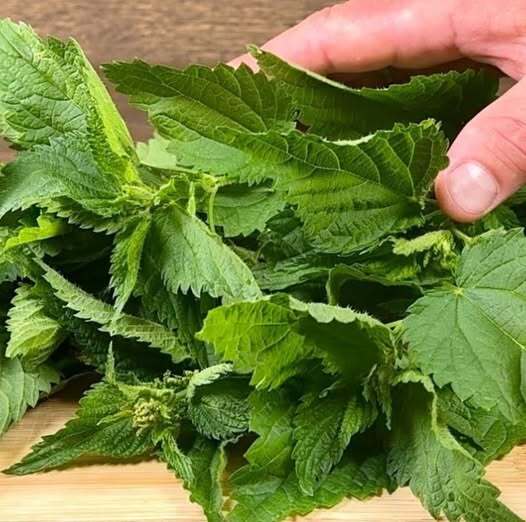ADVERTISEMENT
The Unsung Hero in Your Garden: Discover the Power of Nettle
In the world of gardening and herbal remedies, there is one plant that is often overlooked, despite its remarkable benefits: the nettle. Commonly known for its sting, nettle (Urtica dioica) is often seen as a pesky weed in gardens. But what many gardeners and home gardeners may not realize is that this plant is a true unsung hero with a wide array of benefits, from improving the health of your garden to serving as a potent natural remedy for a variety of health concerns.
In this article, we’ll explore the hidden powers of nettle, why you should consider incorporating it into your garden, and how you can make the most of this humble plant.
A Brief Introduction to Nettle
Nettle is a perennial plant that can be found in a variety of habitats, from forests to fields and even along riverbanks. Its jagged, dark green leaves are covered with tiny hairs that contain a stinging substance, which gives the plant its reputation for being a nuisance. However, while its sting can be unpleasant, nettle has been used for centuries in a variety of ways, including in traditional medicine, cooking, and gardening.
The plant is rich in vitamins, minerals, and antioxidants, which make it an incredibly versatile ingredient. Despite its spiky exterior, nettle is a powerhouse in the garden and the home, offering an array of uses for gardeners, herbalists, and health-conscious individuals alike.
Why Nettle Deserves a Place in Your Garden
At first glance, nettle may seem like just an annoying weed to pull from your garden. However, this plant offers an impressive number of benefits that make it an excellent addition to any garden. Here’s why you should consider embracing nettle as a beneficial companion plant in your yard.
1. Natural Fertilizer for Your Garden
Nettle is often called a “living fertilizer” because of its ability to promote healthy plant growth. The plant contains nitrogen, iron, calcium, magnesium, and a host of other nutrients that are beneficial to your garden. When used as a fertilizer or compost material, nettles help enrich the soil, making it more fertile and conducive to plant growth.
To harness the power of nettles as a natural fertilizer, you can create a nettle liquid fertilizer. Simply gather fresh nettles, chop them, and place them in a bucket of water. Let it steep for about 1-2 weeks, stirring occasionally. The resulting liquid can be used to water your plants and provide them with a nutrient boost. Not only is this a sustainable option, but it’s also an eco-friendly alternative to chemical fertilizers.
2. Pest Control and Natural Pesticide
While nettle’s sting can be a nuisance to humans, it can actually be beneficial in repelling unwanted pests in your garden. The plant contains compounds that act as a natural deterrent for common garden pests, including aphids, whiteflies, and spider mites.
One way to use nettles for pest control is by making a nettle spray. This involves soaking chopped nettle leaves in water for a few days to create a potent liquid that can be sprayed directly onto plants to deter pests. The plant’s natural chemicals disrupt the feeding behavior of pests, making it an effective alternative to chemical insecticides.
Additionally, stinging nettles attract beneficial insects like ladybugs, which naturally help control aphid populations. This makes nettle an excellent addition to any garden, especially if you want to minimize your use of pesticides.
3. Soil Conditioner
In addition to improving the fertility of your garden soil, nettles also help improve soil structure. Their deep roots break up compacted soil, allowing air, water, and nutrients to reach plant roots more effectively. This can be especially helpful in clay-heavy or compacted soils, as nettles help loosen the earth and create a better environment for your plants to thrive.
4. Attracting Beneficial Wildlife
While nettles are often regarded as a nuisance to gardeners, they play a vital role in the broader ecosystem. Nettle plants are important hosts for a variety of beneficial wildlife, including butterflies and bees. Many species of butterflies, such as the Red Admiral, Peacock, and Small Tortoiseshell, rely on nettles for egg-laying and caterpillar nourishment.
By cultivating nettles in your garden, you are providing a haven for these pollinators and other wildlife, which can in turn benefit your garden by ensuring pollination for fruits and vegetables.
For Complete Cooking STEPS Please Head On Over To Next Page Or Open button (>) and don’t forget to SHARE with your Facebook friends
